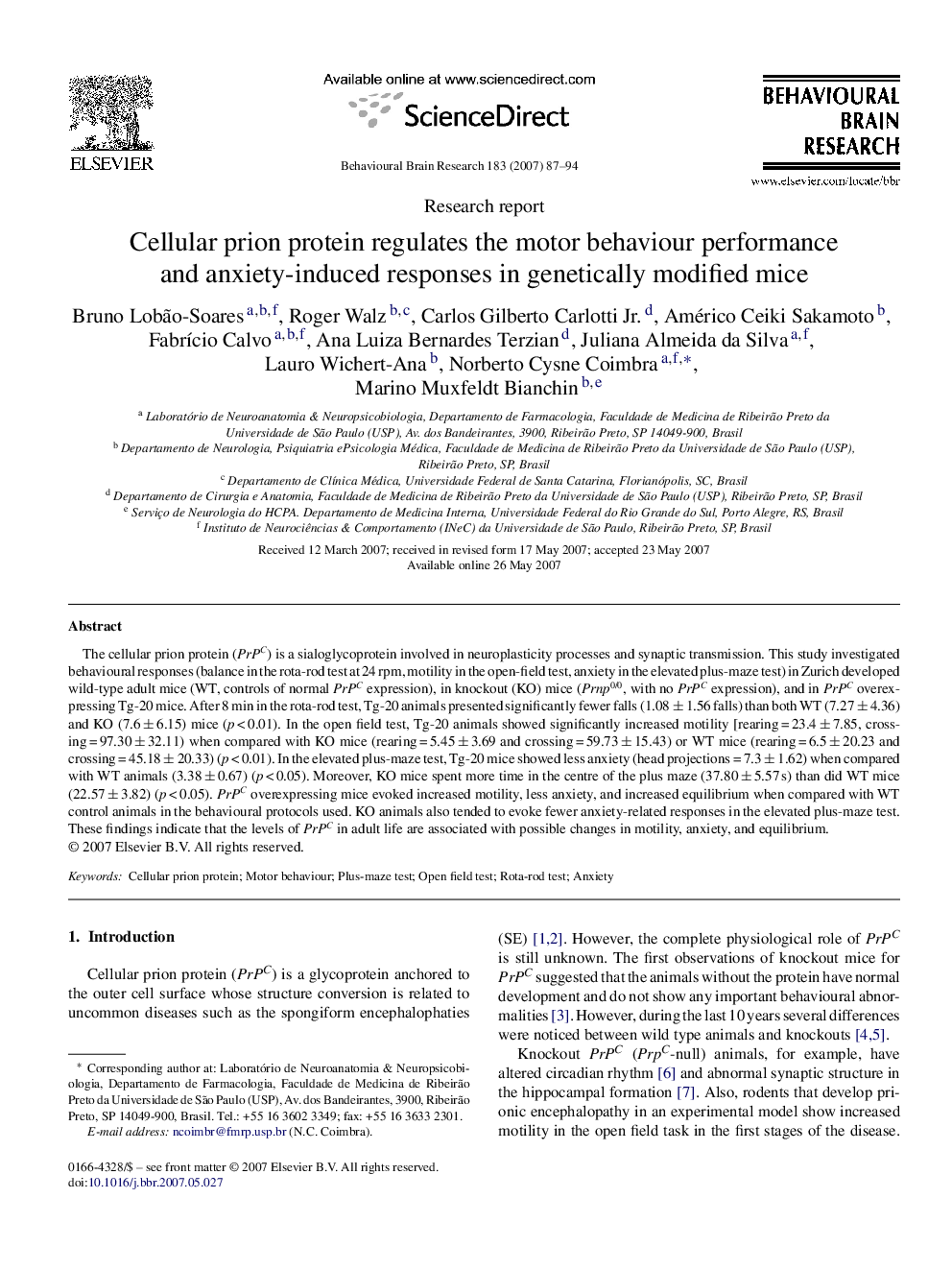| Article ID | Journal | Published Year | Pages | File Type |
|---|---|---|---|---|
| 4315331 | Behavioural Brain Research | 2007 | 8 Pages |
The cellular prion protein (PrPC) is a sialoglycoprotein involved in neuroplasticity processes and synaptic transmission. This study investigated behavioural responses (balance in the rota-rod test at 24 rpm, motility in the open-field test, anxiety in the elevated plus-maze test) in Zurich developed wild-type adult mice (WT, controls of normal PrPC expression), in knockout (KO) mice (Prnp0/0, with no PrPC expression), and in PrPC overexpressing Tg-20 mice. After 8 min in the rota-rod test, Tg-20 animals presented significantly fewer falls (1.08 ± 1.56 falls) than both WT (7.27 ± 4.36) and KO (7.6 ± 6.15) mice (p < 0.01). In the open field test, Tg-20 animals showed significantly increased motility [rearing = 23.4 ± 7.85, crossing = 97.30 ± 32.11) when compared with KO mice (rearing = 5.45 ± 3.69 and crossing = 59.73 ± 15.43) or WT mice (rearing = 6.5 ± 20.23 and crossing = 45.18 ± 20.33) (p < 0.01). In the elevated plus-maze test, Tg-20 mice showed less anxiety (head projections = 7.3 ± 1.62) when compared with WT animals (3.38 ± 0.67) (p < 0.05). Moreover, KO mice spent more time in the centre of the plus maze (37.80 ± 5.57 s) than did WT mice (22.57 ± 3.82) (p < 0.05). PrPC overexpressing mice evoked increased motility, less anxiety, and increased equilibrium when compared with WT control animals in the behavioural protocols used. KO animals also tended to evoke fewer anxiety-related responses in the elevated plus-maze test. These findings indicate that the levels of PrPC in adult life are associated with possible changes in motility, anxiety, and equilibrium.
